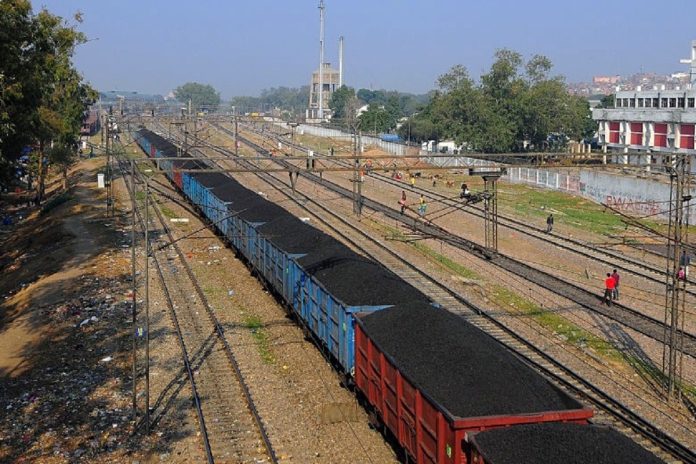Snapshot
A steep increase in electricity demand has forced the Indian Railways to cancel around 16 mail/ express and passenger trains daily to ensure movement of rakes carrying coal to power plants.
Catering to the growing demand for coal, many passenger-carrying trains are being cancelled to make way for coal rakes. The Indian Railways has made an all-out effort to transport coal to powerhouses faster.
In the Indian Railways network, passenger trains were always on priority as the freight trains had to wait to get the cleared path in the rail network.
The spike in coal requirement due to a steep increase in electricity demand has forced the Indian Railways to cancel around 16 mail/ express and passenger trains daily to ensure accessible paths for rakes carrying the critical ingredient to power plants located across the country.
So far, more than 670 such passenger carrying trains have been cancelled, and the Railways have also increased the average daily loading of coal rakes to more than 400, which is the highest ever in the past five years.
Sources said the national transporter had set the target to load and run an average of 415 coal rakes daily, each carrying around 3,500 tonnes, to meet the immediate demand. They added this drill would continue for at least two more months to improve stocks at power plants and avoid any crisis in July-August when coal mining is the least due to rain.
“There are protests against the cancellation of passenger trains in different states. But we have no option left with us as the immediate need is to ensure that there is no coal shortage at power plants and there is no blackout. It’s a catch 22 situation for us. We hope to get over this temporary phase,” a senior Railways Ministry official said.
The official added that since the power plants are located across the country, the railways have to run long-distance trains, and so a large number of the coal rakes are in transit for 3-4 days.
According to official data, barely 269 coal rakes were loaded by railways daily in 2016-17, and it was ramped up in 2017-18 and 2018-19. But during the next two years, the loading fell to touch 267 rakes per day. Last year, this was increased to 347 per day, and till Thursday, the number of rakes loaded with coal stood around 400-405 per day. Officials added that there is an unprecedented increase in demand for coal this year, and rail remains the preferred mode of transport for this.
Coal is used to generate about 70 per cent of India’s electricity.
The railways have also taken several steps to increase coal loading and transport, including running long-haul trains on both the Indian Railways and Dedicated Freight Corridor networks, intense monitoring of detention of all coal rakes at loading and unloading points and also of their movement by senior functionaries.
In case of asset failure on coal routes, the Railways has made it mandatory for senior officers to rush to the site for restoration of defects “on priority”.
It has also imposed loading restrictions for Kisan rails and parcels on select routes and has taken steps to reduce the sick wagon percentage from the current 2.8 per cent.


